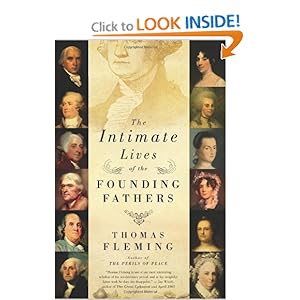Channelling George Washington: The Revolution That Changed the World
 “What do you think is the most important thing most people don’t know about the American Revolution?”
“What do you think is the most important thing most people don’t know about the American Revolution?”
“How you changed the strategy of the war in 1776 and rescued the Americans from collapse?”
“That was important. But it matters more at West Point and amongst the dwindling handful of historians capable of thinking militarily. What I’ve got in mind matters to average people all over the world.”
“I’m all ears, even if my eyelids are drooping.”
“The global impact of the Declaration of Independence. I didn’t give the subject much thought until I got up here to Elysium and watched history unfold around the world.”
“A fascinating idea. Tell us more about it.”
“Since 1776, more than one hundred other declarations of independence have been issued around the globe. That means our revolution has been the driving force behind the creation of a different world. We changed from a few empires to a tremendous number of states, almost all motivated by the same thing that inspired America—a desire for a freedom that couldn’t be altered at the whim of a king, an emperor, or a tsar.”
“Did anyone in America foresee this amazing transformation?”
“It took some time. We were absorbed in putting our own country in working order. But by 1826, the fiftieth anniversary of our Declaration of Independence, the change was becoming more and more visible. When Tom Jefferson was invited to attend a celebration in Washington D.C. that year, he was too sick to go. So he wrote a letter, in which he called the Declaration ‘an instrument pregnant with our own and the fate of the world.’”
“He died two days later. Was that the last letter he wrote?”
“No. Tom being Tom to his final breath, his last letter was to a merchant in Baltimore about a shipment of French wine he had ordered to stock Monticello’s cellar.”
“You were pretty fond of a good Madeira yourself.”
“True enough. To get serious again, by the time Tom wrote his letter to the fiftieth anniversary celebration committee in ‘the federal city’ as he liked to call it—there had been twenty other declarations forming new countries in Europe, the Caribbean and Central America.”
“I guess France was the most important.”
“Unquestionably. Like France, I fear some of these leaps into independence ended in a military dictatorship. Even when this happened, there was a legacy of freedom that the nation could return to when they got a chance.”
“That happened in France, after they got rid of the Bourbons and the Bonapartes.”
“When the American Expeditionary Force arrived in Paris to rescue the French from imminent conquest by Germany in 1917, General Pershing could go to Lafayette’s tomb and say: ‘Lafayette, we are here!’ He was paying tribute to the man who had done more than anyone else to create that legacy of freedom in France—thanks to his experience in our Revolution.”
“Did an outbreak of freedom in some countries surprise you?”
“Frequently. Maybe the most important one was Britain. In 1832, after decades of agitation, Parliament passed the Reform Act, which extended the right to vote to millions of people instead of limiting it to 250,000, the number of enfranchised persons in 1776. They got rid of the so-called rotten boroughs that enabled rich aristocrats to pack Parliament with yes men. It was a giant leap toward genuine freedom, infinitely better than the fake ‘British liberty’ they bragged about in 1776.”
“Did a lot of people see British liberty as a joke, even then?”
“Definitely. Between 1740 and 1776, there were almost one hundred fifty major riots in England that had to be suppressed by armed intervention. At one point it took twenty regiments to restore order in London.”
“Did some of these other declarations echo Mr. Jefferson’s?”
“Quite often they took whole sentences. Lots of phrases, too.”
“Was the declaration a new idea?”
“No document before 1776 was ever called a declaration of independence. But there’s a little secret about it that I find amusing.”
“What might that be?”
“The word independence doesn’t appear in the document. But from the day it was issued, people made the word part of its title.”
“Were other words also important?”
“People. There was an emphasis on how Americans were becoming ‘one people.’ When the Declaration was read to some Continental Army troops, ‘people’ was the word that changed the expression of almost every face. The men looked with delight at each other, as if for the first time they realized we were a ‘people.’ Not separate groups from different towns and colonies, but a ‘people.’”
“Did the declaration spread around the world in stages?”
“Indeed. Until 1848, which saw a climax of revolutionary fervor and an almost equal determination to repress it, the declarations were confined mostly to Europe and nearby African states around the Mediterranean. After the Second World War, there was an explosion in Asia and Africa. Finally, an explosion from 1989-1993 broke up the Communist empire imposed by the Soviet Union and freed its Balkan and Asian satellites.”
“Along with the spread of freedom, what other changes did these developments cause?”
“By far the most important was the amazing increase in the number of states. Between 1950 and 1993, more than one hundred new states were created. A backward look gives you some perspective. There were only twenty-five states that mattered in 1900. That rose to about fifty when the United Nations was created in 1945. There are now 192 member states of the UN.”
“And all this started with the American Revolution!”
“It was a revolution that changed the world.”